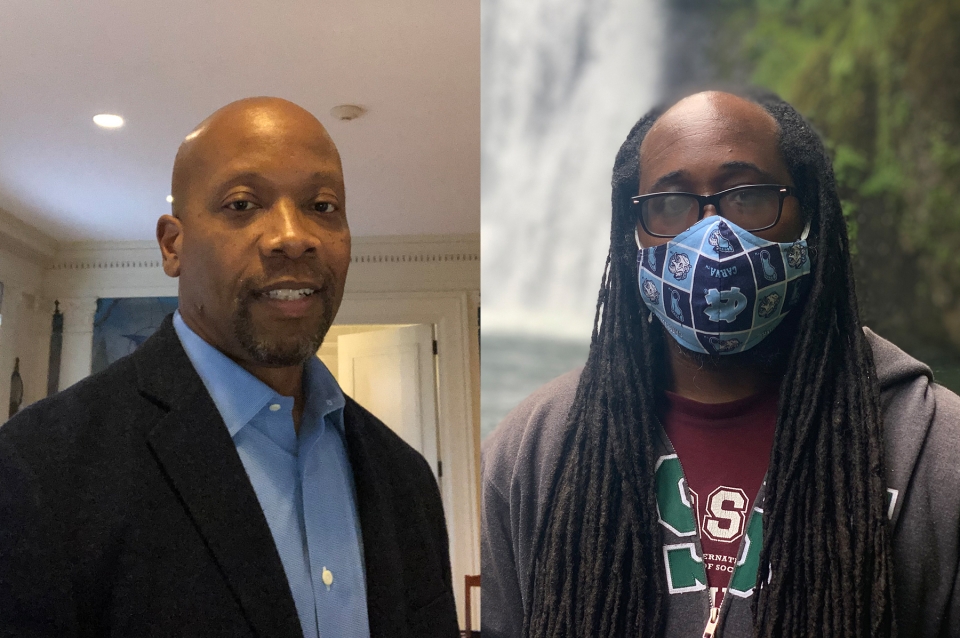July 8, 2020
Stuart Weitzman School of Design
102 Meyerson Hall
210 South 34th Street
Philadelphia, PA 19104
Get the latest Weitzman news in your Inbox
Media Contact
Michael Grant
mrgrant@design.upenn.edu
215.898.2539
The Weitzman School announces two new faculty appointments for Academic Year 2020-2021 in the Department of City and Regional Planning: Lance Freeman, a professor in the Urban Planning Program at Columbia University, as the provost’s distinguished visiting faculty fellow, and Jamaal Green as a post-doctoral fellow.
Each year, Penn appoints a senior scholar of national or international prominence as the provost’s distinguished visiting faculty fellow based on a record of promoting civic engagement, scholarly innovation and inclusive communities. Dr. Freeman’s is the first such appointment at Weitzman.
“We are at a watershed moment in American history for how we think about cities—who they serve well, who they do not, and how we can do better,” says Penn Provost Wendell Pritchett. “Lance Freeman and Jamaal Green will provide invaluable insights into this urgent work.”
“I very much look forward to Lance and Jamaal’s contributions to our School and the University,” says Fritz Steiner, dean and Paley Professor at the Weitzman School. “I’m confident they’ll forge important connections here.”
“At a time when social justice has moved to the center of our national conversation, we need to better understand the ways in which housing policy supports or hinders our progress,” says Lisa Servon, the Kevin and Erica Penn Presidential Professor and chair of city and regional planning. Servon also leads the Penn Planning Equity Initiative (PPEI), a wide-ranging effort at Weitzman which aims to redefine planning research and practice, promote action research and its application, and stimulate public dialogue.
Lance Freeman is a professor in the urban planning program at Columbia University. His research focuses on affordable housing, gentrification, ethnic and racial stratification in housing markets, and the relationship between the built environment and well-being. Dr. Freeman teaches courses on community development, housing policy and research methods. He has also taught in the School of Urban Affairs and Public Policy at the University of Delaware. Previously, he worked as a researcher at Mathematica Policy Research, a leading social policy research firm in Washington D.C. Dr. Freeman has published several articles in refereed journals on issues related to neighborhood change, urban poverty, housing policy, urban sprawl, the relationship between the built environment and public health, and residential segregation. Dr. Freeman is the author of the book There Goes the Hood: Views of Gentrification from the Ground Up (Temple University Press, 2006) and A Haven and a Hell: The Ghetto in Black America (Columbia University Press, 2019). Dr. Freeman obtained extensive experience working with community development groups as a community development coordinator for the North Carolina Institute of Minority Economic Development and as a research associate at the Center for Urban and Regional Studies in Chapel Hill, North Carolina. Dr. Freeman also has professional experience working as a city planner for the New York City Housing Authority, and as a budget analyst for the New York City Department of Environmental Protection. Dr. Freeman holds a Master of City and Regional Planning and PhD in city and regional planning from the University of North Carolina at Chapel Hill.
Jamaal Green is a planner and geographer interested in the ways that the organization of our built environments exacerbate or inhibit social inequality. His research interests include exploring the connections between land use and economic development planning, specifically concerning the role of industrial lands in urban labor markets and greater labor market restructuring, and the application of spatial analysis to policy problems. While working for the State of Oregon Department of Human Services, Dr. Green worked on a variety of projects including developing a spatial risk analysis for child abuse and maltreatment, analyzing the location choices of marijuana dispensaries in Washington and Oregon in order to determine whether certain vulnerable populations were disproportionately exposed and assisted multiple research projects that required census data and mapping support. Dr. Green is interested in a broad range of topics, but he has always focused on the spatial distribution of resources and the foundational questions of social science of, “Who benefits? Who loses? Who pays?” He holds a Master of City and Regional Planning from the University of North Carolina at Chapel Hill, and a PhD in Urban Studies from Portland State University.


 Expand Image
Expand Image


